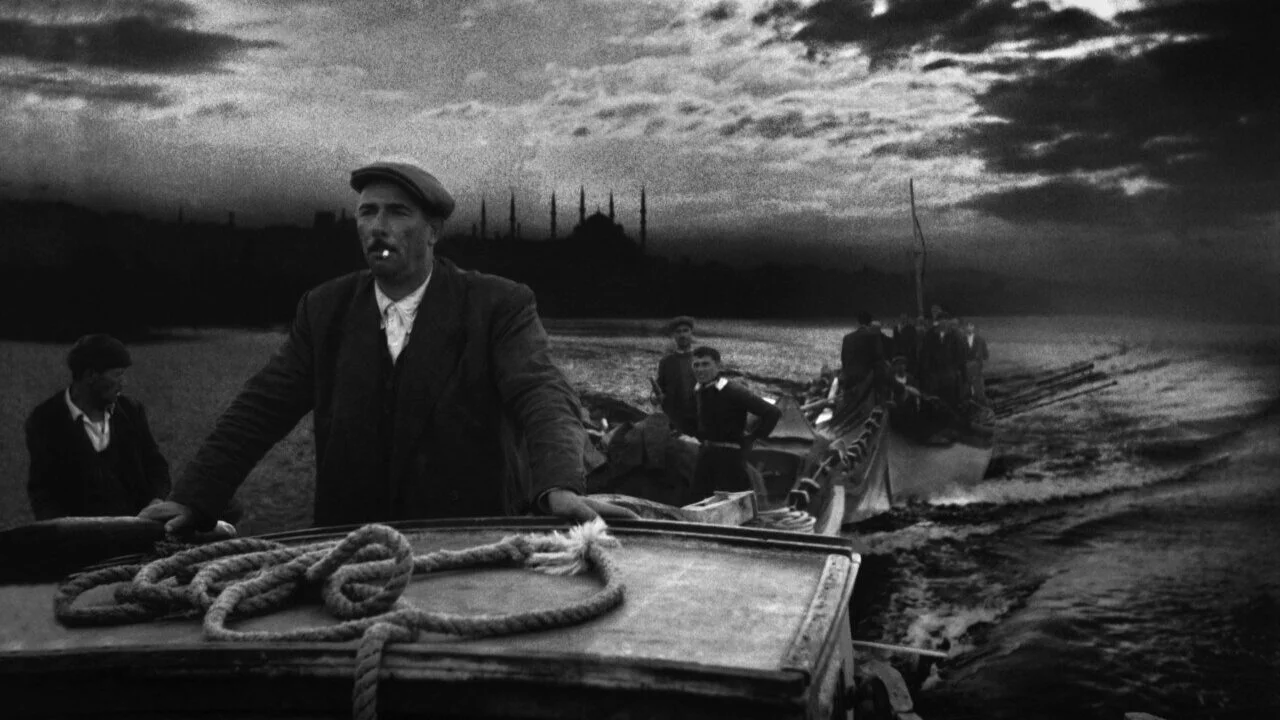Innocence of Memories
A dense, demandingly intelligent work about Istanbul which, had not Terence Davies already used the title, might have been called Of Time and the City.
Grant Gee, first noted as a photographer and editor on Scott Walker: 30 Century Man (2006), went on to prove his directorial skills on Joy Division (2008) and on the highly intelligent Patience (After Sebald) (2011). This complex and sometimes too demanding new work confirms his talents and his willingness to engage with subject matter that challenges the viewer to keep up.
In Istanbul there is a museum created by the writer Orhan Pamuk. It contains exhibits related to his 2008 novel The Museum of Innocence but presented as if referring to real people and not to fictional characters. If visitors to the museum may in consequence interpret what they see in differing ways, so too this is a film that blurs the line between fact and fiction. Pamuk himself appears on various screens (these may or may not be genuine TV interviews) and we see his book which is set in the 1970s and from which passages are read. The novel’s tale of the ill-fated would-be actress Füsun and the love for her felt by Kemal despite his being married to the aristocratic Sobel emerges from this. But when it comes to comments from occupants of the city (a taxi, driver, a ragpicker etc.) we do not know if they are truly themselves or actors and Ayla, another key presence, claims to have been a friend of Füsun while telling us how different Istanbul is now.
But, if Innocence of Memories deals with a story and with characters, what is said involves philosophical ideas about time, space and memories. When incorporating this, the film is often critical of what has happened over the years and yet Pamuk’s enduring love of Istanbul shines through. This is fully realised by Gee as director and photographer and his camera, often tracking and giving us haunting images in ’Scope and mainly in colour, proves intensely atmospheric as it reflects the mood of the city. In particular it captures the special kind of melancholy associated with Istanbul and known as hüzun. In addition the film often achieves a dreamlike quality through the use of superimposed images.
Add that at times comments on Pamuk and on the fictional Kemal seem to be interchangeable and it is clear what a very original work this is. Those with sufficient intellect to keep up may regard it as some kind of a masterpiece, even if they assert that you really need to see it more than once. Certainly it is a film to be respected but, although its length of 97 minutes is relatively modest, I have to admit that viewing it was eventually for me an exhausting experience, one that brought back old memories of watching Hiroshima Mon Amour (1959). My rating reflects that and those more at ease with such challenging material should adjust it accordingly.
MANSEL STIMPSON
Cast: Pandora Colin, Mehmet Ergen, Türkan Soray, Suleyman Fidaye, Dursun Saka, and with Orhan Pamuk as himself.
Dir Grant Gee, Pro Janine Marmot and Keith Griffiths, Narration Orhan Pamuk, Ph Grant Gee, Ed Jerry Chater, Music Leyland Kirby.
BFI/Bord Scannán Na Héireann/The Irish Film Board/a Hot Property production etc.-Soda Pictures.
97 mins. UK/Ireland/Italy/France. 2015. Rel: 29 January 2016. Cert. 12A.


